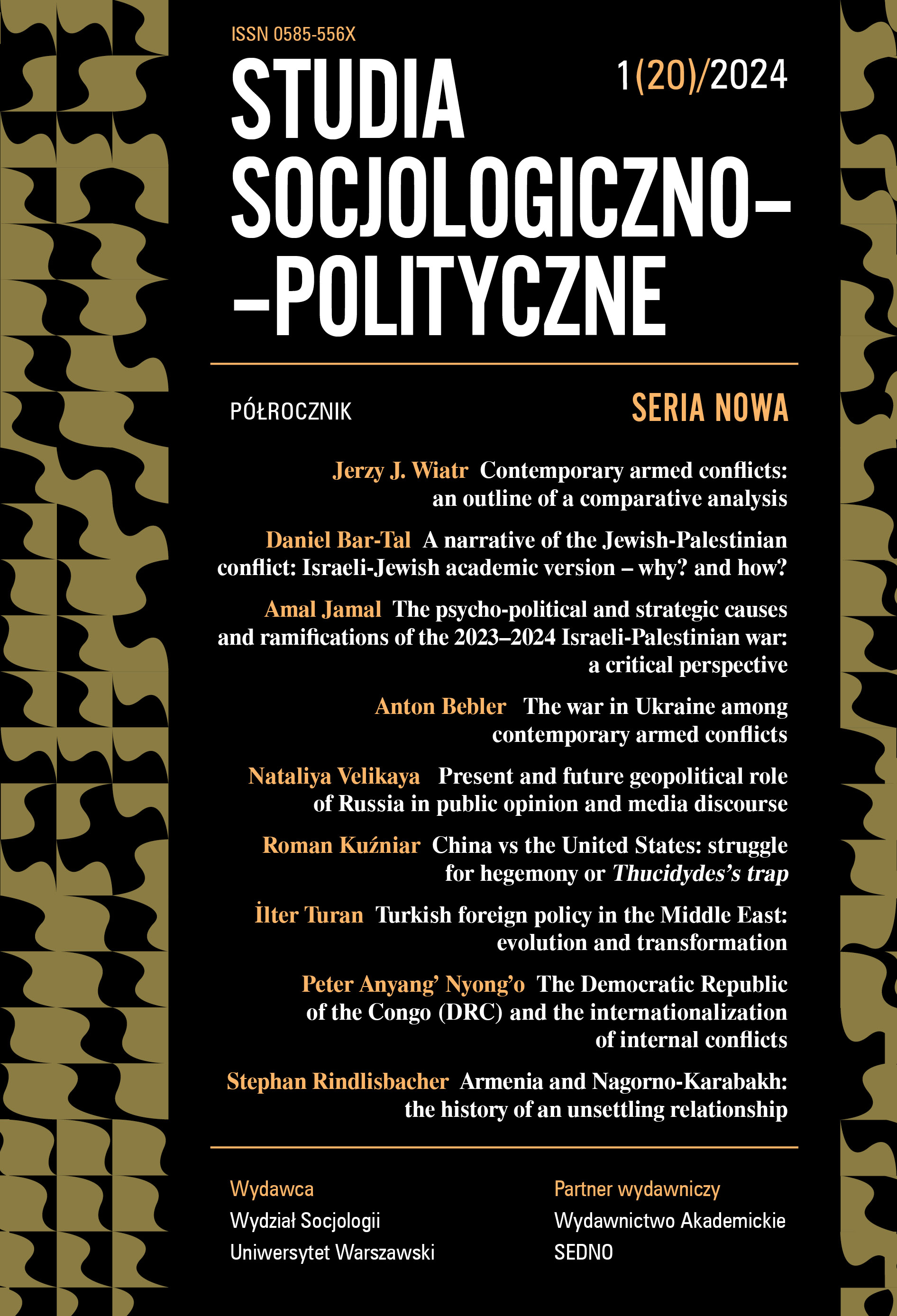ARMENIA AND NAGORNO-KARABAKH: THE HISTORY OF AN UNSETTLING RELATIONSHIP
ARMENIA AND NAGORNO-KARABAKH: THE HISTORY OF AN UNSETTLING RELATIONSHIP
Author(s): Stephan RindlisbacherSubject(s): Politics / Political Sciences, Politics, History, Political Theory, Civil Society, Ethnohistory, Political history, Recent History (1900 till today), Special Historiographies:, Developing nations, Politics and society, 19th Century, Pre-WW I & WW I (1900 -1919), Interwar Period (1920 - 1939), Post-War period (1950 - 1989), Transformation Period (1990 - 2010), Present Times (2010 - today), Period(s) of Nation Building, History of Communism, Inter-Ethnic Relations, Geopolitics, Politics of History/Memory, Politics and Identity, Peace and Conflict Studies
Published by: Wydział Socjologii Uniwersytetu Warszawskiego
Keywords: Armenia; Nagorno-Karabakh conflict; Azerbaijan; South Caucasus
Summary/Abstract: The Armenian-Azerbaijani conflict has been a visible constant on the international stage since 1988. On the Armenian side, the commemoration of the genocide of 1915 and the Soviet decision to attach Nagorno-Karabakh to Azerbaijan in 1921 appeared to be the main drivers to produce and reproduce „groupness”. Whereas Armenian nationalist narratives had first been silenced and then mitigated during the Soviet era, they have become decisive since the dissolution of the USSR. Armenian ethnopolitical entrepreneurs exploited them to establish a new political legitimacy. With the wars in 2020 and 2023, the tide turned in favour of Azerbaijan, as it managed to reconquer Nagorno-Karabakh and expel its Armenian population. Now, Azerbaijan appears as the main driver of the conflict when it utters claims for a corridor to Nakhchivan through the Armenian territory.
Journal: Studia Socjologiczno-Polityczne. Seria Nowa
- Issue Year: 20/2024
- Issue No: 1
- Page Range: 171-186
- Page Count: 16
- Language: English

